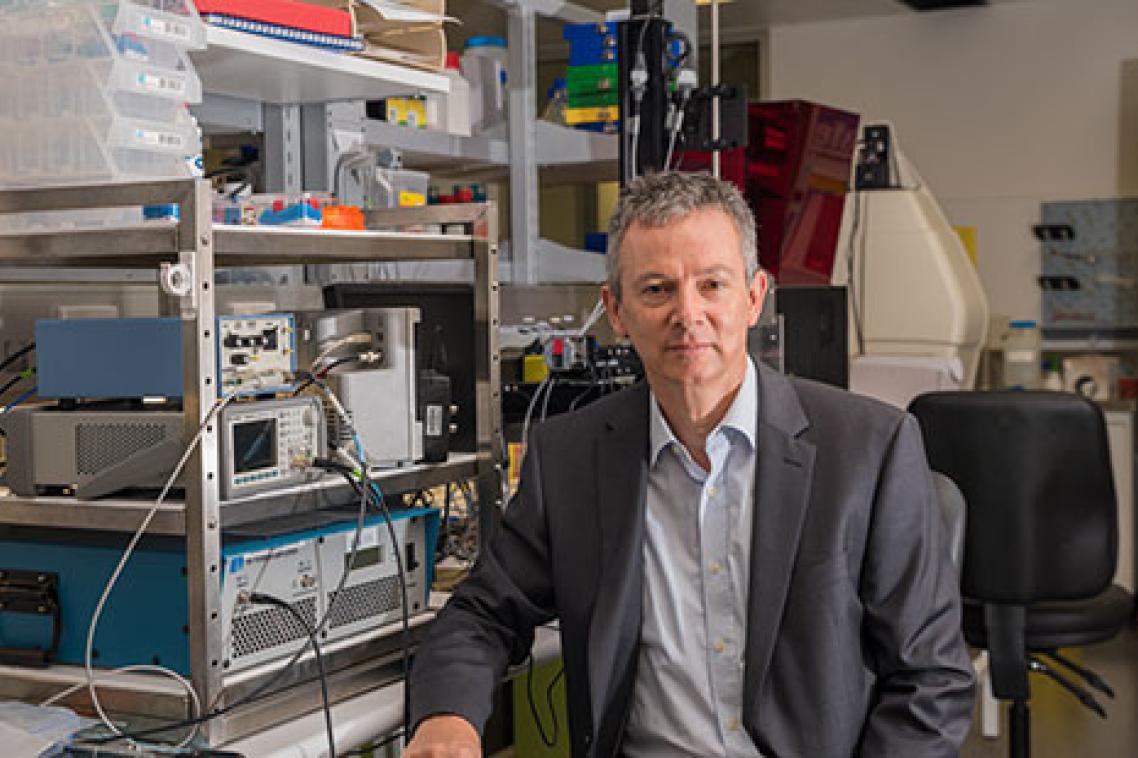$1M funding to develop case for national therapeutic ultrasound industry

A potential dementia treatment that harnesses ultrasound has received $1 million in funding from a fiercely competitive Australian Government scheme to develop the therapeutic ultrasound industry in Australia.
Federal Health Minister Greg Hunt announced that funding from the prestigious Medical Research Future Fund (MRFF) Frontier Health and Medical Research scheme would support a partnership led by The University of Queensland’s Queensland Brain Institute (QBI) aimed at kick-starting a whole new industry sector.
QBI’s Clem Jones Centre for Ageing Dementia Research Director Professor Jürgen Götz said ultrasound was an emerging non-invasive technology with the potential to improve the lives of millions of patients with brain diseases.
“Our vision is to accelerate the development and delivery of therapeutic ultrasound as a safe and effective treatment for Alzheimer’s disease, and as a platform to deliver drugs for brain diseases more generally,” Professor Götz said.
“The social and economic impact of brain diseases will cost the Australian taxpayer an estimated $19 billion in today’s dollars by 2025.
“The worldwide market for brain disease treatment was US$ 28 billion in 2016, demonstrating a pressing social and economic need for improved therapies.
“This funding will allow us to create a collaborative network of partners around Australia and New Zealand with complementary expertise to build a business case for establishing a new industry sector in therapeutic ultrasound.”
UQ investigators from QBI, the Australian Institute of Bioengineering and Nanotechnology, the Centre for Advanced Imaging, the Australian Institute for Business and Economics and UniQuest Pty Ltd are partnering with QUT, The University of Western Australia, New Zealand’s Callaghan Innovation, Queensland Health, Centenary Institute, QIMR Berghofer Medical Research Institute, Hydrix Pty Ltd and the Herston Imaging Research Facility.
The $1 million of funding from Stage One of the program is for researchers to develop a detailed research proposal over 12 months for their innovative ‘out-of-the-box’ research. The successful applicants from Stage One will then be invited back to compete for a multi-year investment to bring frontier medical discoveries to the public.
QBI Ultrasound Product Development Manager Dr Rachel De Las Heras said Australia was well-positioned to pioneer ultrasound technology in treating brain diseases.
“Our collaborative network has demonstrated significant capability in translating the initial therapeutic ultrasound discovery into a prototype medical device for the treatment of Alzheimer’s disease,” Dr De Las Heras said.
“This funding will allow our network partners to build on those established capabilities here in Australia, and position the nation as a world leader in this technology.”
UQ Vice-Chancellor and President Professor Peter Høj AC said the project was an example of how investing in fundamental research could lead to economic boosts for the nation and improvements in health and quality of life for everyday Australians.
“We are delighted that the Australian Government through the Medical Research Future Fund has recognised the value of exploring therapeutic ultrasound as the basis for a future medical device industry that would incorporate both manufacturers and service providers,” Professor Høj said.
“Together with our valued partners, we will continue to translate our research to provide jobs and better healthcare for our community.”
Media: QBI Communications, communications@qbi.uq.edu.au, +61 405 661 856.
Topics
Related articles

Australia needs doctors – so why are hundreds of qualified international physicians unable to work?

Greater attention needed on community service workforce
Media contact
UQ Communications
communications@uq.edu.au
+61 429 056 139
